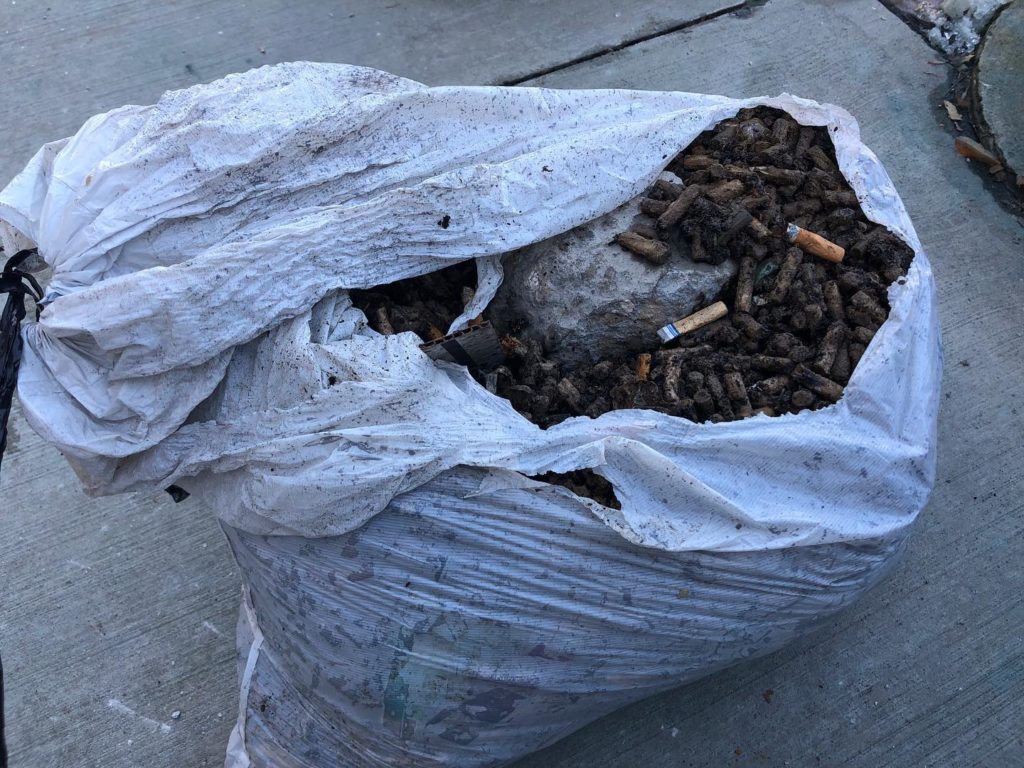No Butts About it: Cigarettes Are Bad for the Environment
- Go Green Go
-
Dec 17
- Share post

Have you ever seen someone throw a cigarette butt out a car window? For environmentally minded folks, we see this as littering and we know its implications.
Unfortunately, the general public sees this as a pretty benign thing to do. In a study conducted by the World Health Organization, tossing a cigarette butt out of a car window or flicking the butt in a parking lot is seen as “acceptable”. In fact, 75% of smokers have admitted to improperly disposing of cigarette butts and nearly 65 % of cigarettes ultimately end up as litter. A study conducted by the BBC found that approximately 4.5 trillion cigarette butts are littered annually globally. This statistic is further supported by a Keep America Beautiful poll which showed that 77% of Americans do not consider cigarette butts litter!
• 75% of smokers have admitted to improperly disposing of cigarette butts
• 65 % of cigarettes ultimately end up as litter
• 4.5 trillion cigarette butts are littered annually globally
• 77% of Americans do not consider cigarette butts litter
Once the cigarette butt is tossed on the roadside, or other impervious surface, such as a sidewalk or parking lot, it doesn’t usually stay there. The remaining butt or “filter” is washed into a local water source (stream, lake, wetland, etc.) via a stormwater drain. Once there, the cigarette filter leaches toxins, such as arsenic, lead, and nicotine into the soil or waterways. A controlled laboratory experiment found that just one cigarette butt added to an aquarium killed 50 percent of fish within 96 hours! All of these small filters add up: cigarette butts are commonly the largest volume of any item removed during beach cleanups (including on Lake Erie!).
So why are cigarette butts not considered litter?
This could be attributed to the fact that many people assume that filters are biodegradable. This is simply not the case. Cigarette filters slowly erode into microscopic plastic fibers, known as microplastics. Despite their size, these microplastics pose a huge problem to the health of our watersheds. Plastic particles have been found in aquatic life in the deepest reaches of the ocean and are regularly found in human foodstuffs.
How can we make a difference?
While the change in attitude regarding cigarette butts isn’t going to be automatic, there are several small changes that can make a large difference. An increased presence of cigarette receptacles in a wider array of locations will make proper disposal easier. But perhaps most importantly an increased push for greater knowledge regarding the environmental and public health dangers posed by cigarette litter is needed.
You can help your home watershed a variety of ways. If you’re a smoker, try your best to quit, or dispose of cigarettes properly. Encourage your friends and neighbors to do the same. Make sure there are adequate disposal containers where you work, or ask for them to be installed. Just like every little cigarette butt adds up, so do your actions to keep them out of our waterways.
READ MORE:
Toxicity of cigarette butts, and their chemical components, to marine and freshwater fish
How Cigarette Butts Pollute the Environment
Contributed by:
Kelli Herrick
Watershed Coordinator for Tinker’s Creek Watershed Partners
See Their Go Green Go Profile Here
